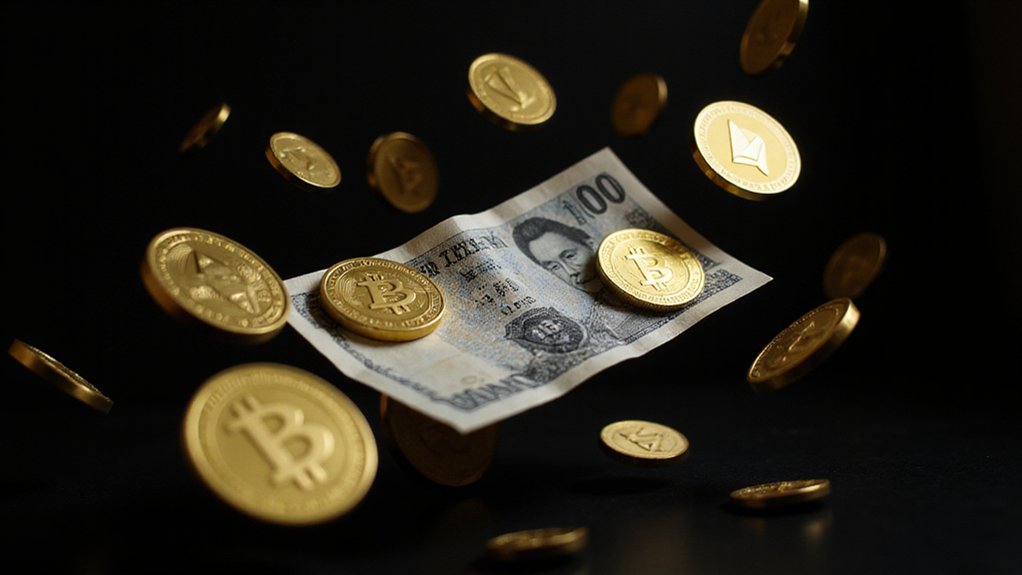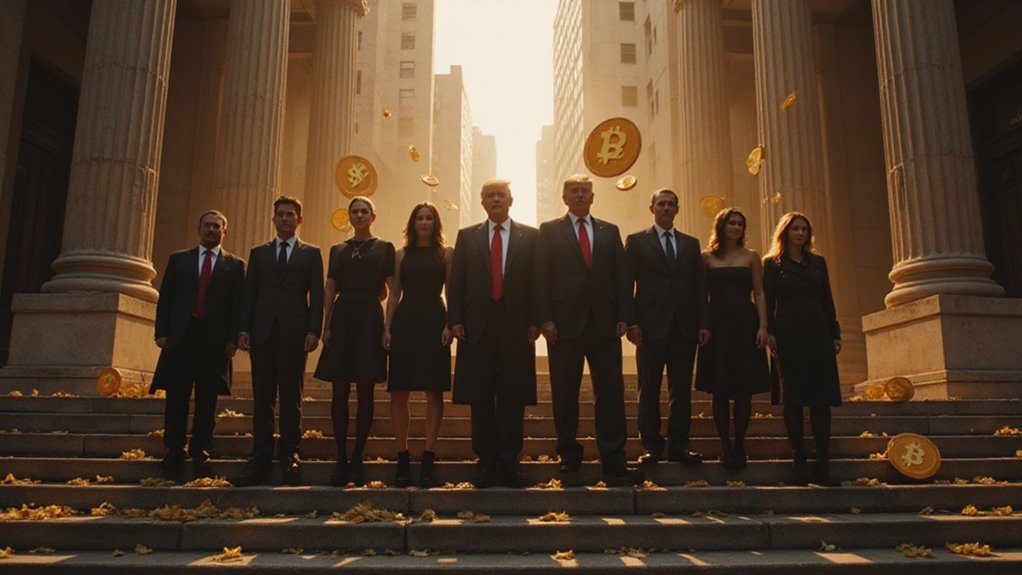While most governments worldwide scramble to extract their pound of flesh from cryptocurrency profits through increasingly Byzantine tax codes, the United Arab Emirates has taken a revitalizing straightforward approach: they simply don’t.
The mathematics are elegantly simple: individuals pay zero percent personal income tax on crypto earnings, zero capital gains tax on trading profits, and zero VAT on personal cryptocurrency transactions. This triumvirate of tax abstinence has transformed the UAE into what can only be described as a fiscal oasis for digital asset millionaires—a development that has prompted a veritable exodus from jurisdictions where crypto taxation resembles medieval torture.
Zero taxes on crypto earnings, zero capital gains, zero VAT—the UAE’s triumvirate of fiscal abstinence creates a true digital asset paradise.
Consider the stark arithmetic comparison. While American crypto investors face capital gains rates reaching 37% alongside labyrinthine reporting requirements, their UAE counterparts enjoy complete tax immunity on personal transactions. European investors, burdened by VAT on crypto payments, witness their UAE peers conducting business entirely VAT-free. The resulting migration patterns suggest that geography, rather than technology, may be cryptocurrency’s most powerful innovation.
The regulatory framework underpinning this tax paradise demonstrates sophisticated financial engineering. The Dubai Virtual Assets Regulatory Authority (VARA) provides clear compliance guidelines while maintaining the tax benefits that attract capital. Strong anti-money laundering and know-your-customer standards guarantee legitimacy without compromising the fundamental appeal: keeping one’s profits intact. Many wealthy investors utilize globally regulated exchanges like CEX.IO to execute their crypto transactions while maintaining compliance with international standards. This comprehensive oversight has contributed to Dubai achieving a remarkable 25.3% crypto ownership rate among residents, demonstrating the success of balancing regulatory clarity with fiscal incentives.
Corporate entities face marginally different treatment—businesses exceeding AED 375,000 in annual revenue pay a modest 9% federal corporate tax on profits, while commercial crypto activities incur 5% VAT. Even these rates pale compared to the 21% corporate tax rates plaguing American crypto businesses, making the UAE competitive across individual and institutional investor categories.
The nuanced approach extends to mining operations, where individual miners remain exempt from VAT (mining being classified as non-economic activity), while business-level mining faces standard VAT treatment. This distinction reflects the UAE’s sophisticated understanding of crypto’s varied applications. The Federal Tax Authority recently issued VATP039 clarification to prevent misinterpretation of VAT exemptions across different virtual asset activities.
The result? A jurisdiction that has successfully positioned itself as the premier destination for crypto wealth preservation. While other nations debate whether digital assets constitute property, currency, or securities, the UAE has simply decided they constitute an opportunity—one measured not in regulatory complexity, but in attracted capital and grateful millionaires.







